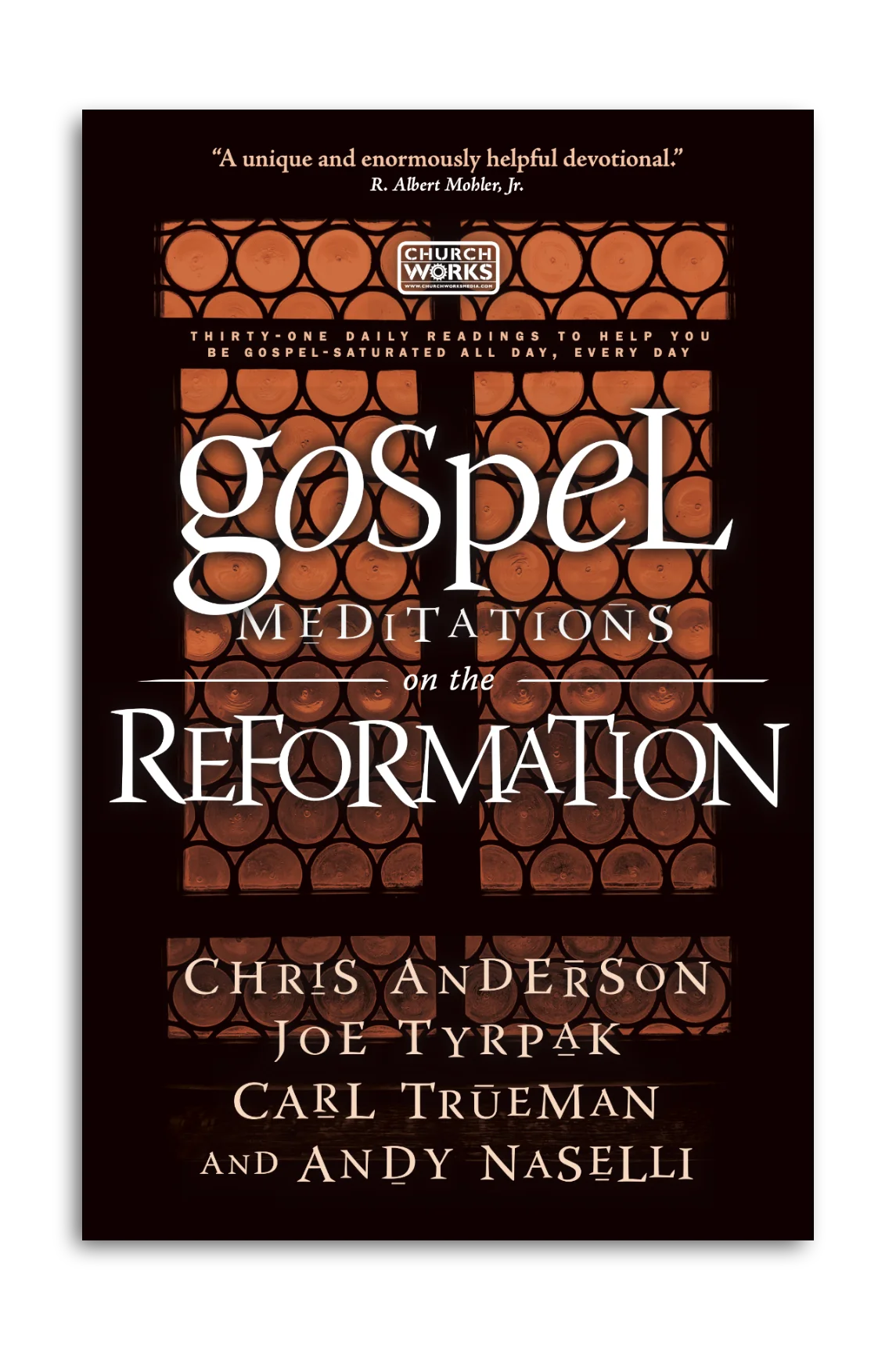
Blog
Yes! You Are in Full-Time Christian Service

This post by Joe Tyrpak comes from Gospel Mediations on the Reformation (Day 3: “Full-Time Christian Service”).
“Slaves…you are serving the Lord Christ.” (Colossians 3:22-24)
God created us to work. Work is part of what it means to be human. Work is a good thing; it’s not a result of the Fall. The part of work that results from the Fall is the pain, the conflict, the stress, and the exhaustion in work. But we were created to work and thereby glorify God.
Debunking the Secular-Sacred Divide
But one subtle and satanic lie about work has plagued Christianity through the centuries. It’s a lie that has demoralized the ordinary work of ordinary Christians. It’s a lie that has flourished in the Catholic Church, a lie that the Reformers labored to correct five hundred years ago, and a lie that still flourishes in most Protestant circles today.
The lie is simple and intuitive. It says, “Those who are employed by the church serve the Lord, while those who work a ‘secular job’ don’t.” In other words, “Pastors and missionaries are in full-time Christian service; carpenters and computer programmers and stay-at-home moms are Christians who work, but they are not in full-time Christian work.” Such statements are lies. They still need correcting.
In Colossians 3, Paul counsels Christian servants to obey their masters sincerely, not hypocritically, and to work responsibly whether or not their bosses are watching. He also counsels Christian employees to work heartily, that is, to work cheerfully rather than grudgingly.
Three times Paul identifies the motivation that should fuel the responsible and cheerful work of Christian servants: Fear the Lord as you do your work (v. 22), work “as though you were working for the Lord” (v. 23 NLT), and recognize that in all of your work you are ultimately serving the Messiah (v. 24). That final statement is so direct: “Slaves, you are serving the Lord Christ.” Let that sink in, Christian.
No matter what your job or how much you make, your boss is Jesus.
No matter what your job or how much you make, your boss is Jesus. That means that I as a pastor do not serve the Lord in my occupation any more than any other believer in my congregation serves Him in theirs. That means that for the Christian there is no such thing as “secular employment.” All employment is sacred and, in Calvin’s words, “very precious in God’s sight” (Institutes, III.x.6).
If Jesus is your Lord, then you serve Him in your work regardless of your employer—even if you have no employer because you’re self-employed, even if you work at home, and even if your current full-time employment is seeking full-time employment.
Serving Christ in Every Vocation
The Reformers preached that, regardless of your current vocation (vocation literally means “calling”), the Master calls you to a superior lifelong vocation—to serve Him in all your work. As Carter Lindberg summarizes it:
The contribution of the Reformation understanding of vocation was to break the hold of the religious elite on vocation and to democratize it and imbue all of life with religion….Luther always chose examples of vocation [not from religious life but] from daily life: the father washing smelly diapers [and] the maid sweeping the floor. (The European Reformations, p. 126)
True religion is not a Sunday thing. Nor is it a Monday-to-Friday thing. It’s a Sunday-to-Saturday thing. When Jesus is your Master, He gets all of you—your worship and your work.
For the Christian there is no such thing as ‘secular employment.’ All employment is sacred.
How might this realization affect your work? Simply. Begin and end every workday with prayer. Prayer will put you in conscious awareness of your true Master. Martin Luther encouraged those in his pastoral care to begin every day with prayer and the singing of a hymn, after which “you should go to your work joyfully” (The Small Catechism, sec. 7). So whether you’re commuting to the airport, driving to the office or worksite, or coming down the stairs, start every workday in prayer.
Let the gospel’s claim on your life remind you that you are engaged in full-time Christian service.
Explore the whole book!
October 31, 2017, marked the 500th anniversary of Martin Luther’s posting of his Ninety-Five Theses and the beginning of the Protestant Reformation. In honor of this occasion, Church Works Media teamed with noted church historian Carl Trueman and theologian Andy Naselli to write 31 daily devotionals, taken from Scripture and illustrated with scenes from Reformation history. These meditations will feed your mind, warm your heart, and point your thoughts to Christ! Soli Deo Gloria!













